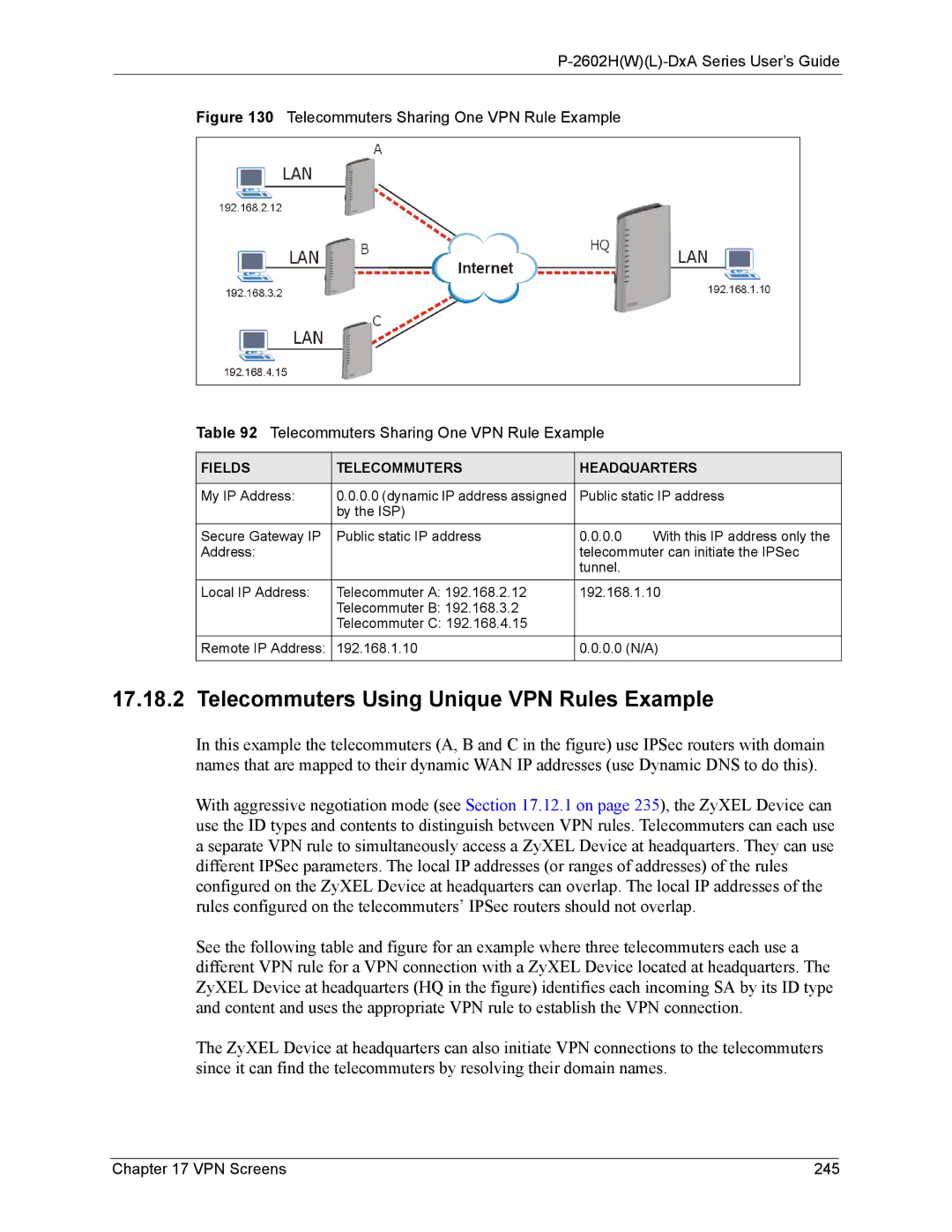
P-2602H(W)(L)-DxA Series User’s Guide
Figure 130 Telecommuters Sharing One VPN Rule Example
Table 92 Telecommuters Sharing One VPN Rule Example
FIELDS | TELECOMMUTERS | HEADQUARTERS | |
|
|
| |
My IP Address: | 0.0.0.0 (dynamic IP address assigned | Public static IP address | |
| by the ISP) |
|
|
Secure Gateway IP | Public static IP address | 0.0.0.0 | With this IP address only the |
Address: |
| telecommuter can initiate the IPSec | |
|
| tunnel. |
|
Local IP Address: | Telecommuter A: 192.168.2.12 | 192.168.1.10 | |
| Telecommuter B: 192.168.3.2 |
|
|
| Telecommuter C: 192.168.4.15 |
|
|
Remote IP Address: | 192.168.1.10 | 0.0.0.0 (N/A) | |
|
|
|
|
17.18.2 Telecommuters Using Unique VPN Rules Example
In this example the telecommuters (A, B and C in the figure) use IPSec routers with domain names that are mapped to their dynamic WAN IP addresses (use Dynamic DNS to do this).
With aggressive negotiation mode (see Section 17.12.1 on page 235), the ZyXEL Device can use the ID types and contents to distinguish between VPN rules. Telecommuters can each use a separate VPN rule to simultaneously access a ZyXEL Device at headquarters. They can use different IPSec parameters. The local IP addresses (or ranges of addresses) of the rules configured on the ZyXEL Device at headquarters can overlap. The local IP addresses of the rules configured on the telecommuters’ IPSec routers should not overlap.
See the following table and figure for an example where three telecommuters each use a different VPN rule for a VPN connection with a ZyXEL Device located at headquarters. The ZyXEL Device at headquarters (HQ in the figure) identifies each incoming SA by its ID type and content and uses the appropriate VPN rule to establish the VPN connection.
The ZyXEL Device at headquarters can also initiate VPN connections to the telecommuters since it can find the telecommuters by resolving their domain names.
Chapter 17 VPN Screens | 245 |
